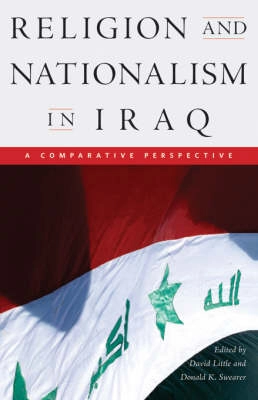

Religion and nationalism in Iraq : a comparative perspective
- Utgiven: 2006
- ISBN: 9780945454410
- Sidor: 256 st
- Förlag: Harvard University, Center for the Study of World Religions
- Format: Häftad
- Språk: Engelska
Om boken
Åtkomstkoder och digitalt tilläggsmaterial garanteras inte med begagnade böcker
Mer om Religion and nationalism in Iraq : a comparative perspective (2006)
2006 släpptes boken Religion and nationalism in Iraq : a comparative perspective skriven av David Little, Donald K. Swearer, Harvard University. Center for the Study of World Religions. Den är skriven på engelska och består av 256 sidor. Förlaget bakom boken är Harvard University, Center for the Study of World Religions.
Köp boken Religion and nationalism in Iraq : a comparative perspective på Studentapan och spara pengar.
Referera till Religion and nationalism in Iraq : a comparative perspective
Harvard
Oxford
APA
Vancouver



















